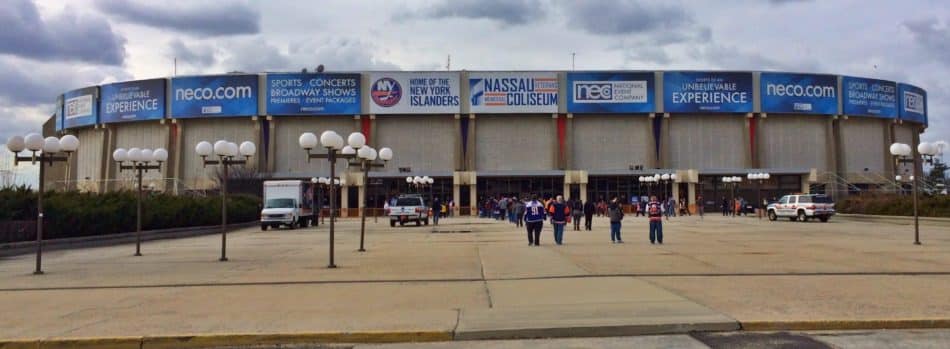After fan complaints and a negative story in the New York Times, a number of fans are being made whole with refunds for two concerts at Nassau Coliseum. Ticket holders for Tool and Judas Priest shows at the Long Island, New York venue waited months for their refunds in a situation that raised a number of questions about how funds are distributed when tickets are purchased, and who is ultimately responsible for making consumers whole when an event is called off.
Complaints began bubbling up in late spring and early summer surrounding the refund situation in New York. As with most every venue in the country, shows at Nassau were wiped out by the pandemic, which had its early epicenter more or less right where the venue sits. While many artists and promoters drew anger by postponing shows indefinitely (thereby tying up fans money for the new shows, however long in the future they may be), Tool was quick to fully cancel its tour.
“As so many music lovers have come to realize over the last several weeks, there is no playbook that artists, promoters and venues can pull from in these unprecedented times,” the band told fans in its announcement of the tour being cancelled. “We could continue to postpone or reschedule dates for some time into 2021 but ethically, we do not think this is the right course of action,” Tool continued. “In our opinion, tying up our fans’ money for months, if not a full year, is unfair. With that in mind, we have made the very difficult decision to cancel the tour so that we can help support the people who have supported us for years.”
Yet months later, no refunds had been granted for those who held tickets to the one particular venue. Coverage of complaints in the media began with a story in August, some three months after the cancellation – while ticket vendor Ticketmaster promises refunds within 30 days of a performance cancellation. As complaints continued to mount, Ben Sisario of the New York Times waded into the fray, describing the fans’ predicament in detail for a story posted on October 11.
The crux of the problem, according to Sisario’s reporting, was that the company run by Russian billionaire Mikhail Prokhorov which formerly leased the building hadn’t released the funds yet. So Ticketmaster – the ticketing vendor and merchant of record on all sales through its system – told fans it had no money with which to pay out refunds. Nassau County, which owns the building, said the issue was between consumers and the venue operators. And Prokhorov’s company maintained it was “working closely with Ticketmaster regarding refunds for tickets purchased through that channel, and is aiming for those refunds to be processed as soon as possible” – months after those refunds were supposed to be paid.
“Both sides are pointing to each other, and I’m monkey in the middle,” one consumer told Sisario of the absurd situation they were being subjected to.
Perhaps due to the negative news coverage, Prokjorov’s company made good on its refund promises finally this week, prompting an update from the Times. Some $2 million had been hanging in the balance for months, which was finally returned beginning in the last week.
The coronavirus pandemic has exposed a number of faults in the ticketing ecosystem related to the near-complete halt of live events beginning in March. Ticketmaster parent Live Nation Entertainment itself was sued by numerous consumers due to its initial reluctance to pay out refunds on cancelled performances, but shifted gears soon after.
As complaints mounted, TicketNews contacted New York Attorney General Letitia James’ office to ask whether or not it had any intention to step in on behalf of consumers while the dispute was active, but received limited response save for clarification questions. The resolution possibly saved some uncomfortable questions for promoters and artists to deal with, particularly related to the liability involved with public venues entered into contracts with private entities like Ticketmaster which can’t then make consumers whole in a timely fashion. Just look at the action being taken against Brown Paper Tickets in Washington, after that ticketing operation left thousands of clients (and even more consumers) in the lurch when it couldn’t pay out refunds for cancelled shows this year.
Acts like Tool might question whether or not they could be facing legal issues in the event of a similar breakdown in the future, given the fact that creditors of the failed Fyre Fest event sued to recoup payments to artists who were tied to the festival prior to its infamous meltdown.
For now, those questions will likely be paused, but the fact that millions of dollars were in limbo when the largest live entertainment promoter on the planet was the merchant of record is certainly reason for pause despite it working out in this instance.
Photo: Wikimedia Commons



